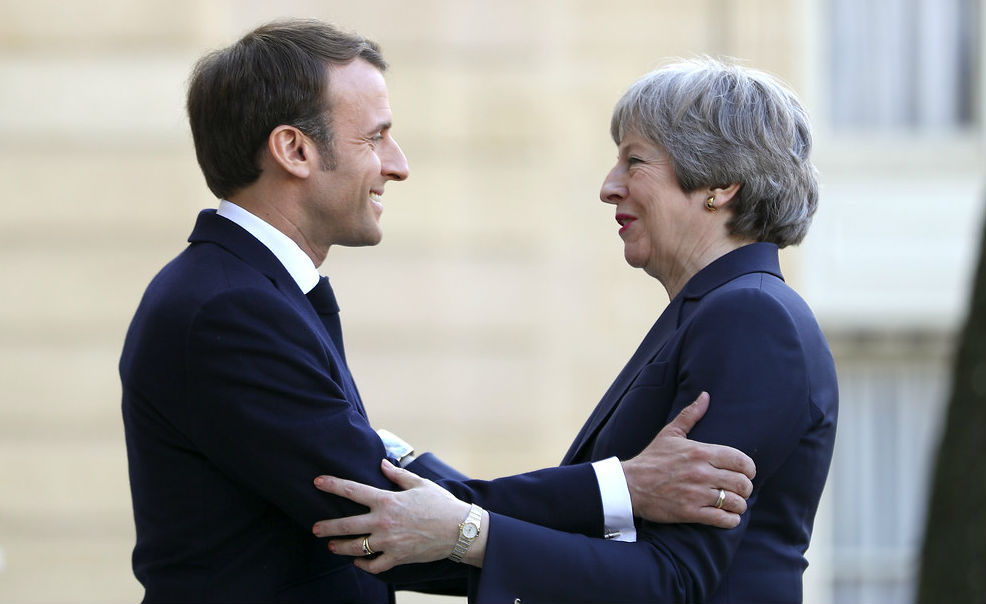 Prime Minister Theresa May travelled to Paris, France to meet with President Macron. Photo: Flickr/Number 10
Prime Minister Theresa May travelled to Paris, France to meet with President Macron. Photo: Flickr/Number 10
As Brexit drags on into the autumn, both opportunities and problems present themselves, argues Martin Hall
Brexit is now set to happen on Halloween, and headline writers will already be polishing off metaphors concerning ‘trick or treat’ in anticipation. While Theresa May wanted an extension just until the end of June, many EU leaders wanted to recalibrate the whole process by extending it until 2020 – presumably to give the UK time to decide to have another vote – with Emmanuel Macron being the sole dissenting voice, mainly because he is attempting to flex his muscles against Angela Merkel, and also because he knows that the UK taking part in European elections will strengthen the populist right, and weaken his brand of tepid Europhile liberalism.
The reality for the left is that last night’s decision to grant an extension until October 31st, with a review in June, means that the most important thing for working people now comes much more sharply into view: a general election.
There are different fronts to this push. Pressure is growing for Theresa May to resign from the right of her party. If the European elections, in which the UK will now have to field candidates, are a disaster for the Tories, and there is every indication that they will be, then the clamour for her to go will become deafening. If she does go sooner rather than later, the new leader may feel that they require a mandate from the country. If the new leader is from the pro-Brexit right, they will want to try and stand on a hard Brexit platform and will need a parliament that will give them a chance of getting that through.
From the left’s point of view, all effort must be made to increase this pressure and to force her out. The Labour leadership must do more to resist the increasing push in the party towards a second referendum, and put a general election front and centre. In order to achieve this, it has to do two things:
- Make it crystal clear that it can get a new Brexit deal agreed in Brussels. This must include opt-outs for state aid
- Make it even clearer that Brexit is not the most important issue facing people today. All talk of Brexit must be accompanied with a commitment to end austerity and enact a new economic programme, which must be closely tied to the importance of the type of Brexit it wants.
To make an obvious point, it cannot do any of this if it continues to participate in cross-party talks. The extension gives the leadership the prefect opportunity to say that enough is enough, May is not making any attempt to make substantive changes to her deal, so it’s time (and there is time) to go to the country.
Unfortunately, at the moment the Labour Party is going in the other direction, with Keir Starmer and Emily Thornberry increasingly calling the shots. The latter has gone on record as saying that any deal agreed between the party leaders must be put to a public vote. This is predicated upon two things: the large pro-EU contingent in the PLP and a complete misreading of much of its base.
The only people who will gain from this are the populist right: UKIP and Nigel Farage’s new Brexit party, currently polling at 18% combined, who are going to pick up votes from disaffected Tories, but even more from Labour leave voters outside the big cities, particularly in the north and midlands.
This is the most negative aspect of Brexit delay: an opportunity is being given for the populist right to relaunch themselves at the European elections. This ranges from the fascist core around Tommy Robinson to Farage’s Brexit Party, which has already gathered some support from people who voted Labour in 2017 and feel betrayed by it increasingly positioning itself as a Remain party.
In fact, it is the case that the increasing push towards a second referendum from senior Labour figures will give the right an opportunity to get a bigger hearing for dangerous, nativist arguments that what is happening with Labour in terms of its view of a significant section of its base is part of a long history of it being taken for granted. They will tie this to the New Labour era and the long decline that began under Thatcher.
This cannot be allowed to happen. Labour’s programme in 2017 presented the best chance for renewal and prosperity in a generation. The leadership must carve out a space where that argument can be made in the loudest possible voice, but it cannot do that if it is spending its time arguing for a second referendum and in so doing, propping up Theresa May.

